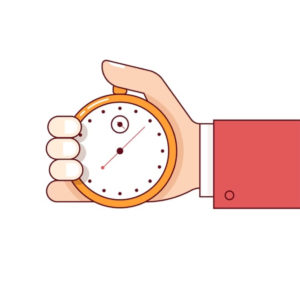
27 Jul Buddy Punching – How to prevent it!
What is buddy punching?
“Buddy punching” is a term used in the context of workplaces, particularly with respect to timekeeping and employee attendance. It refers to the practice where one employee clocks in (or out) for another.
This is typically done in scenarios where time clocks are used to track employee hours. If an employee is late, leaving early, or not coming in at all, they may ask a co-worker (a “buddy”) to clock in or out for them to make it seem as if they worked their scheduled shift. This practice is generally considered a form of time theft, as it can lead to employees getting paid for time they didn’t actually work.
Due to its impact on productivity and labor costs, many organizations put strict measures in place to prevent buddy punching, such as biometric systems that require a fingerprint or a facial recognition to clock in and out.
The Impact of Buddy Punching
While it might seem innocuous or even a gesture of camaraderie, buddy punching is a serious issue. It directly leads to time theft, which is when employees get paid for time they haven’t actually worked. Over time, even a few minutes here and there can add up to substantial losses for the company in terms of productivity and labor costs.
Moreover, buddy punching can foster a work culture that tolerates dishonesty, and such a perception can impact employee morale and work ethics negatively. On a broader level, it can create legal issues, as companies are required to maintain accurate records of employee work hours for compliance with labor laws.
How does buddy punching lead to time theft?
Time theft is when employees are paid for time they haven’t actually worked, and buddy punching directly contributes to this.
For example, if an employee is scheduled to start work at 8 am, but doesn’t arrive until 8:30 am, that employee should not be paid for the half-hour they were not working. However, if a coworker clocks in for them at 8 am (“buddy punches”), the late employee would be paid for that extra half-hour.
The same scenario could happen at the end of the work day, where an employee might leave early but have a coworker clock them out at the correct time, or during a day when an employee doesn’t come to work at all but has a coworker clock in and out for them.
These examples illustrate how buddy punching can lead to time theft, as employees end up being paid for time during which they weren’t actually present or working. Over time, this can lead to significant labor cost increases for the company and a loss of productivity.
Preventing Buddy Punching
Preventing buddy punching requires a proactive approach. One of the most effective measures is implementing time tracking systems that are hard to manipulate. Today’s technology offers an array of options:
Biometric Time Clocks:
These devices require unique biological information, such as fingerprints or facial recognition, to clock in and out. As such, they can effectively eliminate buddy punching.
Proximity Cards or Badges:
Proximity cards or badges are given to each employee and are needed to clock in and out. While this does not entirely eliminate buddy punching, it makes it more difficult.
GPS Tracking:
Ideal for remote or field workers, GPS-enabled time tracking systems can record where an employee clocks in or out from, making buddy punching virtually impossible.
Interesting research by Research Gate on Tracking Employees using GPS.
In addition to technology, fostering a culture of honesty and integrity is equally important. Communicating openly about the consequences of time theft and encouraging employees to take responsibility for their own timekeeping can make a significant difference.
While buddy punching might seem a harmless practice, it has far-reaching consequences that can impact a company’s productivity, bottom line, and work culture. By implementing secure timekeeping systems and fostering an environment of accountability and honesty, employers can effectively deter buddy punching and promote a more productive and ethical workplace.




